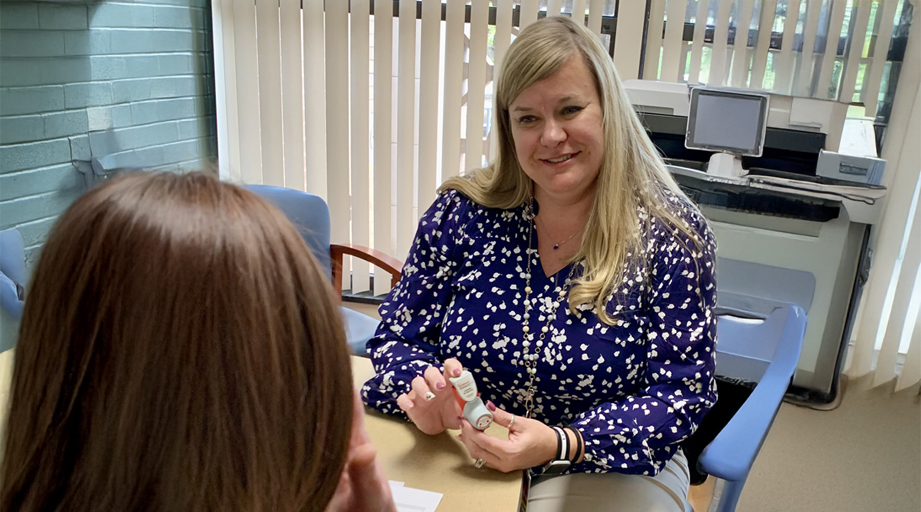
During a 2.5-year sabbatical with the Centers for Medicare and Medicaid Services (CMS), Brian Isetts discovered an unexpected opportunity for pharmacists to shape public policy — if they know where to look.
Isetts, a professor at the University of Minnesota College of Pharmacy in Minneapolis, said he observed, while at CMS headquarters in Baltimore, that members of the Medicare Evidence Development and Coverage Advisory Committee (MEDCAC) gathered there periodically for daylong public meetings.
“I’d peek in on them,” he recalled. “And I said, ‘This is important work, but it’s kind of shrouded in a little mystery.’ Even the folks at CMS didn’t seem to know much about what was going on, except that it’s coverage development, ... and they’re reviewing evidence.”
“Our profession needs to know about this,” he added.
MEDCAC was initially chartered in 1998 as the Medicare Coverage Advisory Committee. The committee’s mission is to provide independent guidance and expert advice on clinical topics that inform coverage decisions for the Medicare program. For each meeting, CMS chooses up to 15 experts in appropriate fields from a roster of about 100 advisers who serve overlapping two-year terms.
Isetts officially became one of those advisers in 2018. He said he hopes to serve on panels related to pharmacogenomics, shared decision-making, quality improvement, and other areas of interest to CMS.
Also on the panel is Carolyn Ford, Professor of Pharmacy and Director of Community Healthcare Outreach at Wingate University School of Pharmacy near Charlotte, N.C., who this year started her second two-year term on the advisory committee.
Ford said she found out about MEDCAC in 2015, when she was selected to attend a two-week course on translational health disparities held at the National Institutes of Health campus in Bethesda, Md.
“My name was on the roster as one of the scholars. And because the emphasis of MEDCAC at that time was to recruit people with expertise in health disparities and medications, I was forwarded the [nomination] announcement as something that I may want to consider,” she said. “And then I just applied.”
She said she originally applied because it was an opportunity to provide clinical insights that help shape policy.
In addition to her background in health disparities, Ford said her pharmacotherapy training included psychiatric medications, which were a MEDCAC focus when she first applied to be an adviser.
“I felt that I could offer them some expertise in that area,” she said.
Ford said pharmacists have a lot to offer advisory groups like MEDCAC and should seek opportunities to bring the profession’s perspective to policymaking venues.
“In other areas of practice that I’m involved in, [like] legislation and so forth, I still see pharmacy lagging behind. I still see us not at the table and having an active voice,” she said.
But she cautioned that being appointed to the MEDCAC roster doesn’t guarantee that the adviser’s voice will be heard during a meeting.
“I actually have not gone up and served on a panel,” she said. “This time around, ... I’m waiting to be pleasantly surprised” to be asked to serve.
The MEDCAC charter states that advisory meetings take place about 2–4 times annually.
Two meetings have been held each year since 2015. Last year, CMS convened the committee to discuss aortic valve replacement and patient-reported outcomes of chimeric antigen receptor T-cell therapy for the treatment of advanced cancer.
A MEDCAC spokesperson stated in November that meetings are held as needed, and none were yet scheduled for 2019. Announcements will appear in the Federal Register and at the MEDCAC coverage website about 2–3 months before scheduled meeting dates.
CMS also publishes its annual call for nominations to MEDCAC in the Federal Register.
Isetts, because of his experience at CMS headquarters, knew to watch for the Federal Register announcement if he wanted to apply for a seat on the committee. In his case, the announcement was published on November 3, 2017, and a nomination letter and curriculum vitae were due November 27.
Applicants may self-nominate or be nominated by an interested party. From each year’s pool of nominees, CMS identifies potential candidates and requests additional information, including details about possible conflicts of interest.
“In my 2.5 years at CMS, I got really good at government paperwork. And so this wasn’t daunting at all,” Isetts said.
The annual announcement lists the areas of clinical expertise for which CMS seeks nominees. For 2017, those areas included cancer screening, genetic testing, psychopharmacology, dementia treatment, and minority health.
“We have to continue to strive towards improving [healthcare] for all of us,” Isetts said of his decision to respond to the call for nominations. “We have to build on evidence and try to improve the effectiveness and safety of medications.”
[This news story appears in the Febuary 1, 2019, issue of AJHP.]







